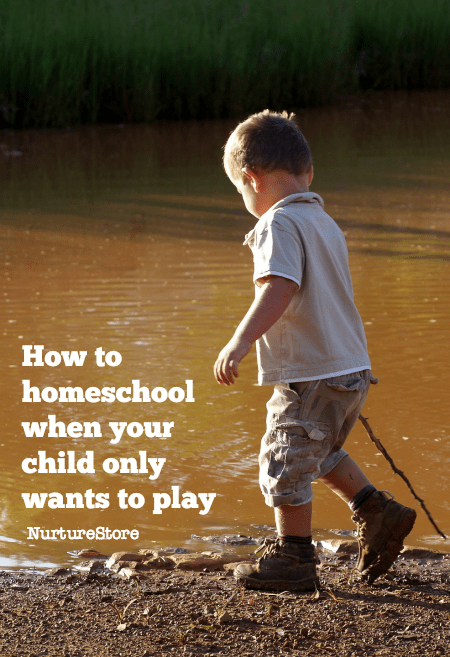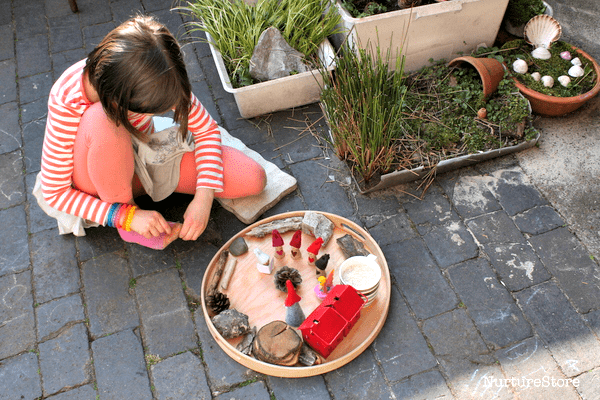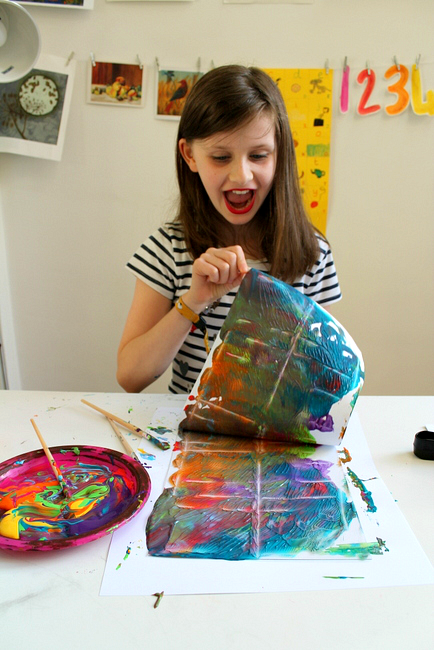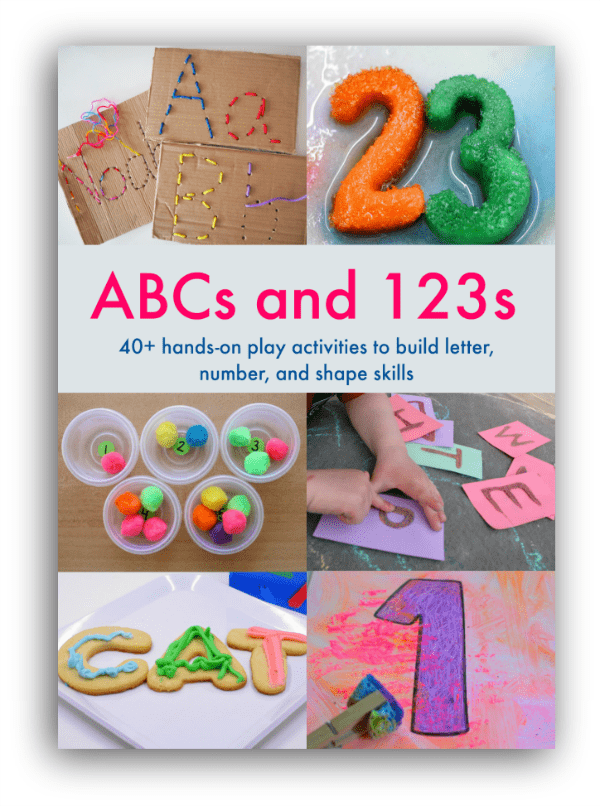“I could never homeschool – I’d never be able to get my child to sit down and do math.” How do you homeschool when your child only wants to play?

How to homeschool when your child only wants to play
The short answer is: let them play! Whenever, wherever, for as long as you can. Montessori, Einstein and Piaget all agree with the central importance of play, in childhood and beyond. Through play we learn skills, to think, to question, and to discover.

Play is the work of the child. – Maria Montessori
Traditional play builds vital skills. As children nurse a doll, build a tower, or chat on a pretend telephone, they are developing language, maths and social skills. Our ABCs and 123s poster champions the value of play, reminding us that children aren’t just playing; they’re thinking, talking, sharing, problem solving, and learning too.
For how long you leave your children to play, largely without any directed activities, depends on your child, their individual development and desires, and your overall education philosophy: until they are five, seven, 12, 14…?
Section 7 of the Education Act 1996, which applies to England and Wales states:
The parent of every child of compulsory school age shall cause him to receive efficient full-time education suitable a: to his age, ability and aptitude, and b: to any special educational needs he may have, either by regular attendance at school or otherwise.
It is in the ‘otherwise’ that we find home education, and learning through play.
Have you heard the saying ‘never wake a sleeping baby’? When I think of education the variation ‘never disturb a playing child‘ comes to mind. Being in the play-zone is important, and filling our weeks with too many extra activities to the point where there is little free time for play is something I have always guarded against, because children need time and space to get in the flow of play.
Flow, is a state of mind, first referenced by psychologist Mihály Csíkszentmihályi, when one is “fully immersed in a feeling of energized focus, full involvement, and enjoyment in the process of the activity.” Flow is when things connect and breakthroughs happen. Ask any writer, scientist or musician when they get their best ideas and you will likely find they come from having the time and space to find their flow. Our children need time – often, and in generous chunks – to get into the flow of their play.
Play is the answer to how anything new comes about. – Jean Piaget
When you do start to introduce more structured activities with your chid, do this through play too. It’s the best way for them to learn, as they are relaxed, engaged and enjoying themselves. Their brain is ‘on’ and they’re ready to bring all the skills they have learned through their free play to these more ‘academic’ games of learning to read, write, and count.
Children only really want to do things they find fun. The same is true for adults if we are honest, although we have learned the importance of responsibilities too. If you want to pass on skills to your child: find a fun way to do it, so your child meets you with enthusiasm and the learning is a success.
Let your child’s introduction to letters, reading, writing, spelling, and maths be through multi-sensory play. ABCs and 123s is a wonderful resource for you in this stage, as the activities are based on play, and your children will be exploring and learning through their senses.
The resources have been carefully chosen to offer a wide range of math and literacy skills, working across the curriculum to incorporate play, imagination, science, sensory and art, and they’re tried, tested, and approved by our children. We use games such as iceberg alphabets, play dough numbers, and puddle jumping math to keep an atmosphere of play as we build skills.

Play is the highest form of research. Albert Einstein
When you fill your home or classroom with multi-sensory, hands-on learning, you can keep an atmosphere of play surrounding our child all through their education. Don’t stop! Not when they’re five, or ten, or fifteen.
Especially when children move to exams, preparing to head out into the real world, or to begin on a career path, they still need to play. Groundbreaking scientific discovery occurs, breathtaking art and music is created from people who approach their work with a playful, creative, experimental attitude.
Hold space for your child’s creativity and imagination and keep providing time for play. Use resources that inspire an environment of wonder and experimenting and discovery.
Play is problem solving and experimenting – vital skills, learned through childhood, developed through the support of an engaging, playful education, to give your child the real skills they need to head out into the adult world.
Ready to try out some play-based activities?
ABCs and 123s makes it so easy for you to offer your child fun, engaging and effective math and literacy activities, based in play. The activities have been carefully chosen to offer a wide range of math and literacy skills, working across the curriculum to incorporate play, imagination, science, sensory and art. Your children will love the engaging invitations, and you will be able to see how they are building their skills through play. Get your ABCs and 123s resources here.


